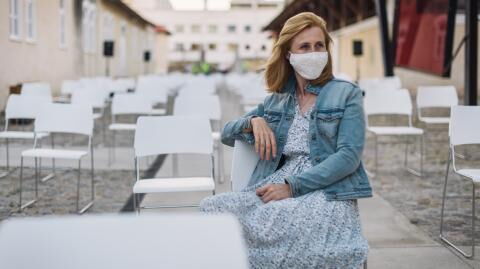As COVID cases have been steadily declining in the UK in the last seven days, Boris Johnson's government is looking into the possibility of lifting Plan B restrictions as early as February.
Discover our latest podcast
WFH could be the first restriction to be removed
If cases continue to decline progressively in the following weeks, the end of harsh restrictions might come sooner than expected for Britons. Ministers have said that WFH would be the first restriction to be removed as a way to make sure the economy does not plummet as it did during the first and second waves of the coronavirus in 2021. Key figure and Secretary of State for Housing, Communities and Local Government, Michael Gove—who was previously adamant about imposing strict restrictions, said:
There are other coronaviruses which are endemic and with which we live – viruses tend to develop in a way whereby they become less harmful but more widespread. So, guided by the science, we can look to the progressive lifting of restrictions and, I think for all of us, the sooner the better. But we have got to keep the NHS safe.
'We can live with COVID'
In most recent developments, experts who were once pushing for restrictions to halt the spread of the virus have admitted that their predictions might have been exaggerated. Specifically, the UK Health Security Agency (UKHSA) has come forward with a statement acknowledging having issued misleading claims about the imperative need to impose severe measures. Minister Gove explained:
We are moving to a situation where it is possible to say we can live with Covid, and that the pressure on the NHS and on vital public services is abating.















